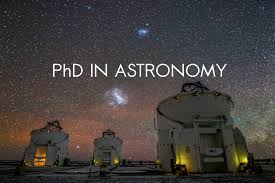
A Ph.D. in Astronomical Sciences is typically a 4-6 year program that provides advanced training in the study of celestial objects, their formation, evolution, and interactions. Astrophysics, cosmology, planetary science, observational methods, and the use of data analysis and computational tools in astronomical research are among the subjects covered in the program. In order to advance the scholarly understanding of phenomena such as black holes, exoplanets, galaxy formation, and the universe's beginnings, students carry out novel research, frequently in cooperation with observatories, space agencies, or interdisciplinary research teams. The program's graduates are equipped for jobs in academia, space exploration, government research organizations, commercial aerospace firms, and science communication, where they can use their knowledge of astronomy to further scientific understanding, create cutting-edge space technologies, and motivate others.